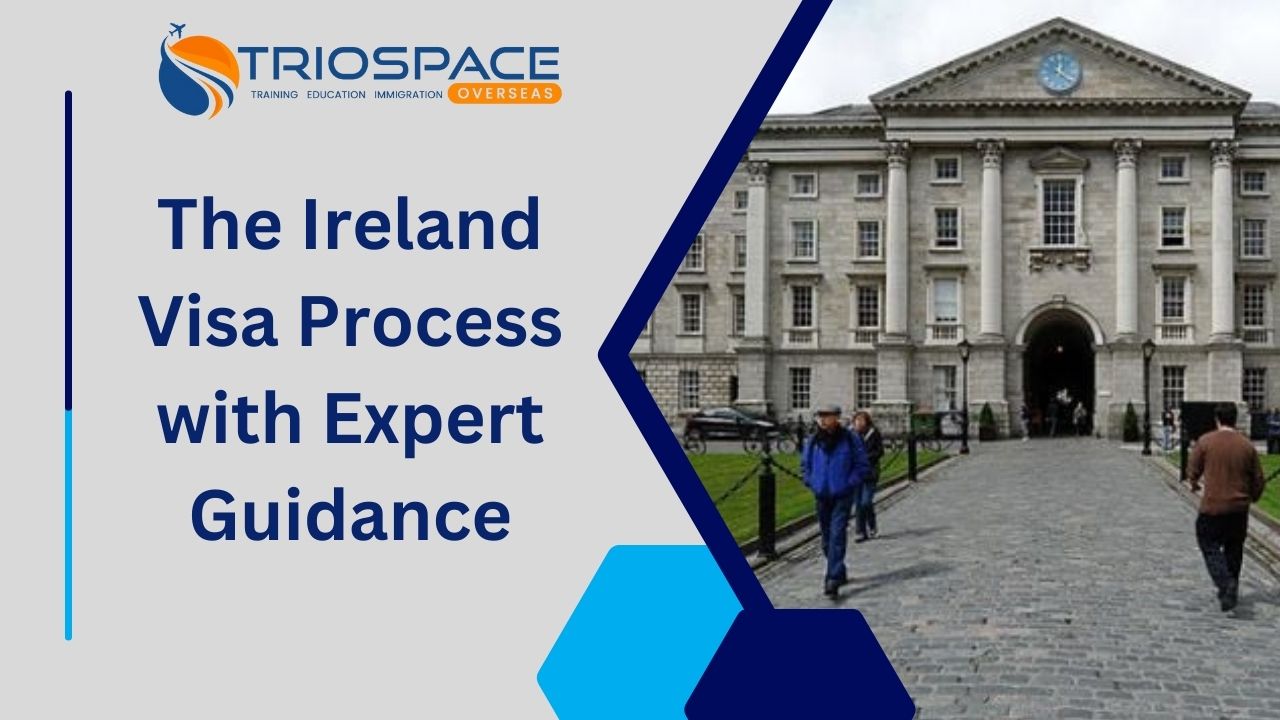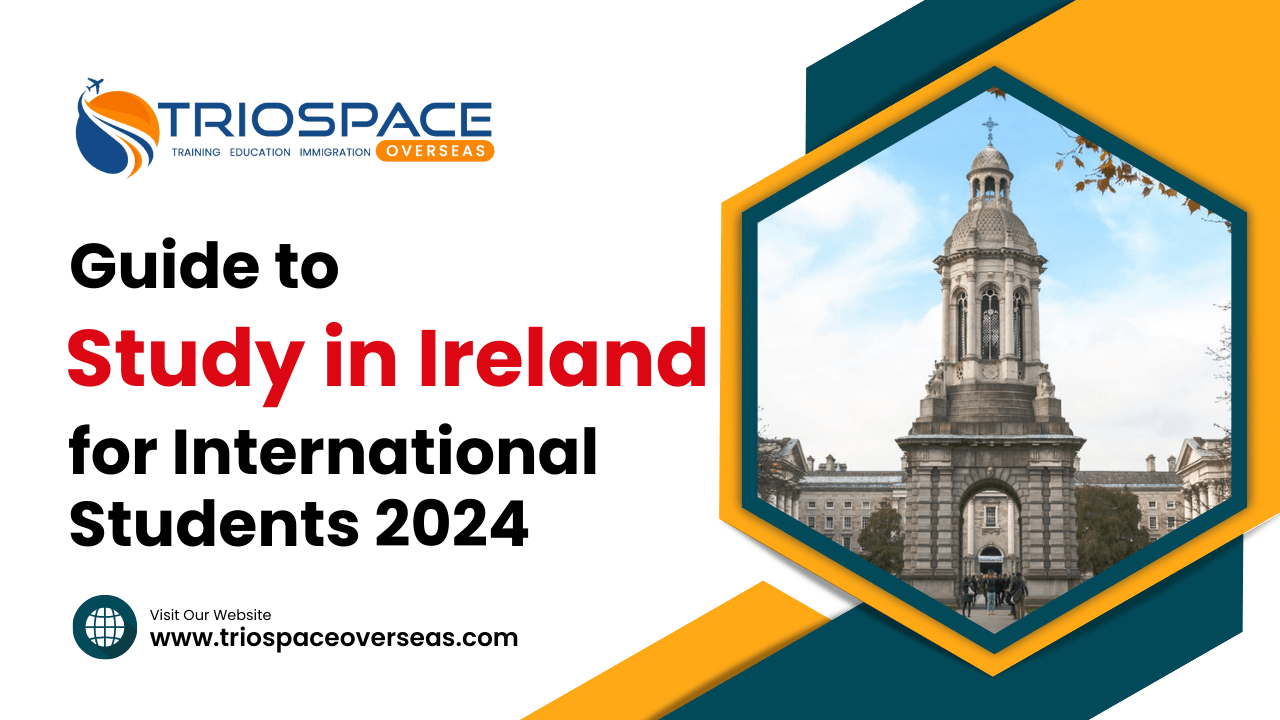
Planning to Study in UK
UK Consultants in Hyderabad
Speak with Study Abroad Expert
Study in UK Consultants in Hyderabad
Study in UK with Triospace Overseas, the best UK Consultants in Hyderabad. The United Kingdom (UK) is home to some of the world’s oldest colleges and universities, going back to the 12th and 13th centuries. Because of its long history, studying in the United Kingdom has become the norm in other countries.
Please Watch our video for a complete process of How to Study in UK | Complete UK Visa Process in Telugu | Triospace Overseas
Why Study in UK?
It makes sense that many International Students choose to Study in UK. Top reasons for studying in the UK include the following:
- World-class universities
- Globally recognized degrees
- A diverse range of courses
- Innovative teaching methods
- International student support
- Cultural diversity
Intakes to Study in UK
There are three main intakes for study in UK:
- September/October Intake (Autumn/Fall Intake)
Starting in late September or early October, this is the main intake for institutions in the UK. This intake is when most undergraduate and graduate courses start.
- January/February Intake (Winter Intake)
This is the second intake, which normally begins in late January or early February at universities in the United Kingdom. Beginning with this intake, a fewer number of undergraduate and graduate courses are offered.
- May/June Intake (Spring Intake)
Usually beginning in late May or early June, this is the least frequent intake for institutions in the UK. This intake sees the start of a very small number of undergraduate and graduate courses.
Education System to Study in UK
The UK has a rich history of intellectual distinction and tradition. A demanding education with a heavy emphasis on research and critical analysis is provided by British universities. The nation’s links to the rest of the world and its diverse academic offerings are advantageous to students.
Know more about Top 6 Best Courses in the UK
Admission Criteria to Study in UK:
- Bachelors with 55% or higher
- If the student has any prior experience, it must be supported by conclusive evidence.
- TOEFL (ibt) 84 overall and no band less than 20.
- IELTS 6.5 bands with no band less than 6.
- Most modern colleges/universities have waivered the language competence requirement if the student obtains a grade point average of 70 or higher in Class 12. English
- Applications must be made to UCAS (Universities and Colleges Admissions Service), and you must ensure that you have gathered all of the necessary information, which includes:
- Test scores and prerequisites for overseas students at the university (please check with the university you desire to attend as they will help you with this).
- A personal statement
- A letter of recommendation
- Payment to UCAS (Universities and Colleges Admissions Service)
Application Process to Study in UK Universities:
Depending on the particular university and program you’re applying to, the application process for admission to that school may differ. But there are a few standard procedures that apply to the majority of applicants. The following is a step-by-step tutorial on the university application process:
- Research and Choose Your Program
- Check Admission Requirements
- Prepare Your Application Materials
- Submit Your Application
- Pay the Application Fee
- Attend Interviews (if required)
- Wait for Admission Decisions
- Accept Your Offer (if admitted)
University education can be a highly fulfilling experience, but it is also a significant life decision. Your chances of being accepted into the university of your dreams can be improved by taking the actions listed here.
Apply for the Student Visa:
The process of applying for a student visa to the UK can seem overwhelming, but it can go more smoothly if you prepare ahead of time and pay close attention to details. Here’s how to apply for a student visa to the UK step-by-step:
- Check Eligibility
- Create a UKVI account
- Complete the online application form
- Pay the visa application fee
- Book your biometrics appointment
- Submit supporting documents
- Attend your visa interview (if required)
- Receive your visa decision
Have a look at the detailed information for the UK Student Visa
Documents Needed for a Visa:
* Education: Class 10 and Class 12 bachelor’s and master’s degrees (yearwise, provisional, and combined).
Financial Requirements:
i) Money that is more than 28 days old needs to be kept on hand as evidence of funds. Money in savings, student loan debt, and FD
ii) The student may petition for a student visa on behalf of himself or herself and their parents.
* Duration of stay: Before the start of your studies, you are allowed to visit the UK.
* Up to one week beforehand, if your course lasts six months or fewer.
* Please allow up to one month’s notice if your course is longer than six months.
Scholarships to Study in UK for universities:
Different colleges provide different amounts of money and types of grants for Study in UK. A portion of your living expenses above the tuition, up to 100%, may be covered by certain research programs.
Get the total information about MBA Scholarship in UK
For Indian students hoping to Study in UK, there are several well-known government scholarship programs available:
Know more about the scholarship programs to study in uk
Expenditures to Study in UK:
Study in UK can be expensive based on several variables, such as the subject you are taking, the university you attend, and your lifestyle. On the other hand, the cost of tuition alone should cost you between £10,000 and £38,000 a year.
The following summarizes the typical yearly expenses for undergraduate and graduate students in the United Kingdom:
UK Living Expenses
- Inside London – £12,006
- Outside London – £10,035
Visa Fee
- Standard (₹35,000 – 15 days)
- Priority (₹65,000 – 1 week)
Undergraduate:
- Tuition fees: £6,000 to £16,000
- Inside London – £12,006
- Outside London – £10,035
Postgraduate:
- Tuition fees: £10,000 to £20,000
- Inside London – £12,006
- Outside London – £10,035
Additional Costs
In addition to tuition fees and living expenses, you may also need to factor in the following costs:
- Accommodation: £4,000 to £6,000 per year
- Books and materials: £500 to £1,000 per year
- Travel: £500 to £1,000 per year
- Immigration Health Surcharge – £970
Scholarships and Financial Aid
International students can choose from a variety of financial aid and scholarship programs in the UK. These can assist in paying for your living expenses or lowering the cost of your education. More details on financial help and scholarships can be found on the official websites of specific universities or from organizations like the British Council.
Working While Studying
As an international student Study in the UK, you are permitted to work up to 20 hours per week during the academic year and full-time during the summer. This may enable you to make more revenue to pay for your education.
Planning Your Finances
If you are thinking about Study in the UK, it is crucial that you begin your financial planning as soon as possible. This will assist you in ensuring that you have the funds to pay for living expenses, tuition, and other obligations.
Post Study Work(PSW) in the UK:
International students who have finished their studies at a recognized university in the UK are eligible to apply for a Post-Study Work (PSW) visa, which enables them to remain and work in the nation for a maximum of 2 years. The purpose of this visa is to enable international graduates to obtain relevant work experience in the UK and facilitate their assimilation into the UK labor market.
Eligibility
These requirements must be satisfied for you to be qualified for a PSW visa:
- A full-time degree from an authorized UK university must have been earned by you.
- Obtaining a bachelor’s degree or above is mandatory.
- The Confirmation of Acceptance for Studies (CAS) that your university issued you must be accurate.
- The language proficiency standards in English must be met.
- To maintain yourself in the UK, you must have enough money.
















